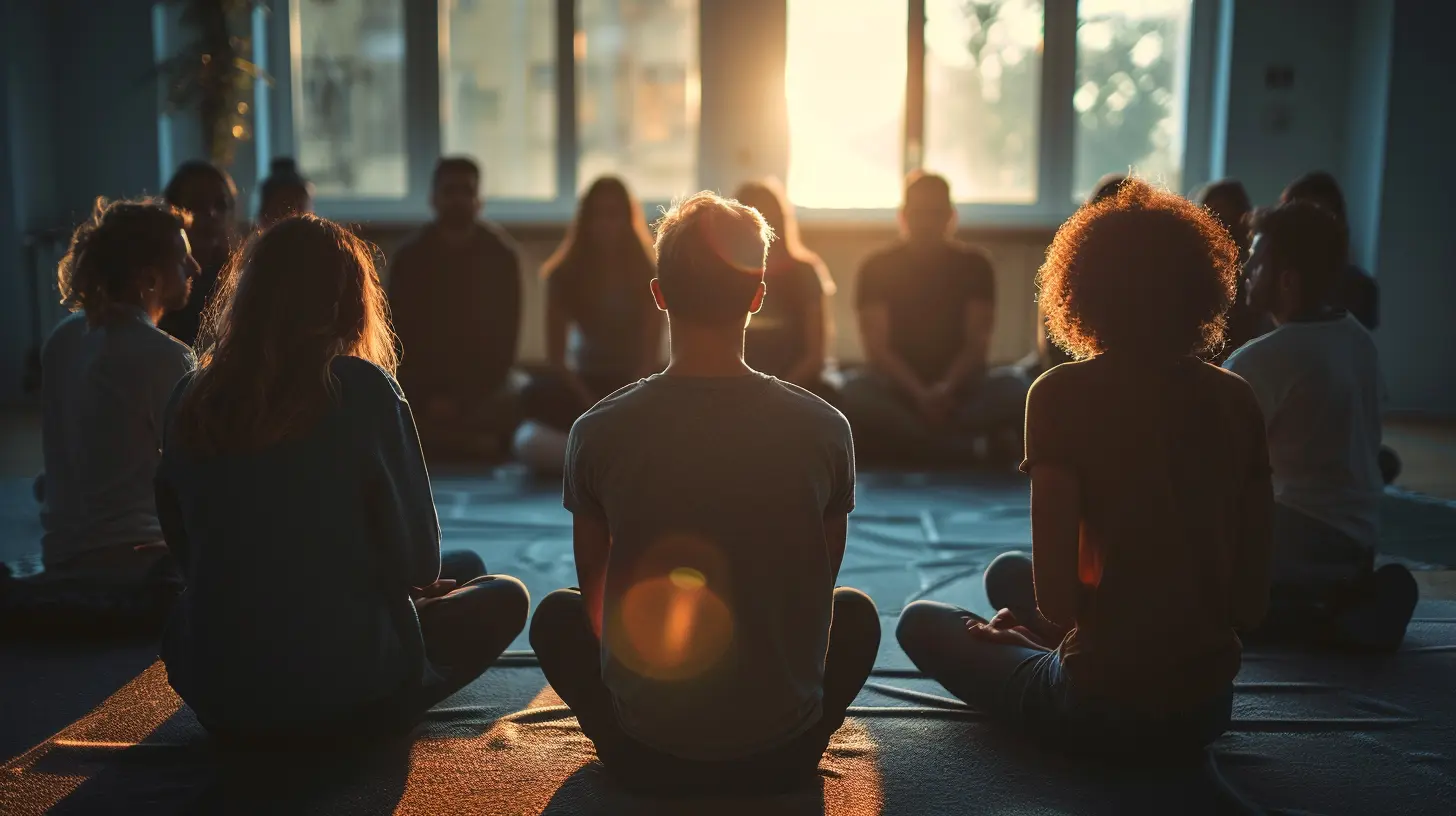The Power of Group Therapy in Overcoming Addiction
9 October 2025
Addiction is like that clingy ex who just won’t take a hint. No matter how many times you swear you’re done, it keeps sliding back into your DMs (or in this case, your life). Overcoming addiction isn’t easy—it takes support, patience, and sometimes, a little tough love.
Enter group therapy—the unsung hero of addiction recovery. While one-on-one therapy is great, there’s something uniquely powerful about sharing your struggles with people who just get it. So, let’s dive into how sitting in a circle and talking about feelings (yes, your worst nightmare) can actually transform your life.

What is Group Therapy, Anyway?
If you’ve ever seen a movie where people sit in a circle, introduce themselves with “Hi, my name is [insert name here], and I’m [insert struggle here],” then you already know the basics of group therapy.It’s a structured form of psychotherapy where individuals struggling with similar issues come together under the guidance of a trained therapist. These sessions provide a judgment-free zone (because life already gives us enough side-eye) and a support system that’s stronger than your morning coffee.
Types of Group Therapy
Not all group therapy sessions are created equal. Depending on your needs, you might find yourself in one of the following:- Support Groups: These are more informal and peer-led, like Alcoholics Anonymous (AA) or Narcotics Anonymous (NA). Think of them as the potluck dinners of therapy—everyone brings something to the table.
- Cognitive Behavioral Therapy (CBT) Groups: Focused on changing negative thought patterns and behaviors. Basically, reprogramming your brain like a software update.
- Relapse Prevention Groups: For those who’ve kicked addiction but know that it still lurks around the corner, waiting for a weak moment.
- 12-Step Programs: Based on a structured approach with spiritual undertones (but don’t worry, no one’s forcing you into a religious commitment).
- Process Groups: Less structured, where members share openly and receive feedback. Think of it as emotional CrossFit—hard but effective.

The Unexpected Magic of Group Therapy
You might be thinking, Why would I want to spill my darkest secrets to a bunch of strangers? Fair question. But group therapy has some hidden superpowers that make it a game-changer in addiction recovery.1. You Realize You’re Not Alone
Addiction is a master at making you feel like you’re the only person on Earth who can’t get their life together. But when you sit in a room (or even a Zoom call) with others who’ve been through the same battle, you realize you’re far from alone.Imagine thinking you’re the only one who’s ever eaten cold pizza for breakfast, only to find out half the room does it too. That’s the magic of shared experiences—you stop feeling like an outcast and start feeling understood.
2. Accountability is a Game-Changer
Ever promised yourself you’d quit something, only to immediately justify why today doesn’t really count? It’s easy to lie to ourselves, but it’s much harder to lie to a group of people rooting for you.Group therapy holds you accountable. When you know you’ll have to face your peers and admit whether you stayed sober (or gave in), it adds a layer of motivation. It’s like having workout buddies—except instead of skipping leg day, you’re skipping relapse.
3. You Get Real Talk, Not Just Textbook Advice
Therapists are great, but there's only so much they can tell you from their textbooks and degrees. Other group members, however? They’ve been in your shoes. They won’t sugarcoat things or hit you with cliché advice like, “Just think positively!” Instead, they’ll say, “Here’s what worked for me, and here’s what didn’t.”It’s like getting life hacks, but for addiction recovery.
4. You Find People Who Genuinely Care
Let’s be real—addiction can wreck relationships. Whether it's family, friends, or partners, trying to recover alone can feel isolating. But in group therapy, you gain a new kind of family. A judgment-free, understanding, and supportive crew who actually want to see you succeed (and won’t bring up that one embarrassing thing you did five years ago).5. Laughter is (Actually) the Best Medicine
Believe it or not, not all group therapy sessions are doom and gloom. There’s something oddly therapeutic about laughing with people who understand you.Imagine sitting in a room, feeling miserable, only for someone to say, “Yeah, last week I accidentally poured orange juice into my cereal because I was so distracted thinking about my cravings.” Suddenly, you’re laughing through the struggle rather than drowning in it.

Busting Myths About Group Therapy
Alright, let’s address the elephant in the room—some people think group therapy is just a bunch of people crying and hugging. While emotions definitely come into play, that’s only part of the story.❌ Myth #1: “It’s Just People Complaining.”
✅ Reality: It’s people sharing experiences and solutions. Venting happens, sure, but it’s not just a pity party. The goal is healing, not whining.❌ Myth #2: “I Have to Share Everything.”
✅ Reality: Nope! You can choose what you’re comfortable sharing. No one’s forcing you to spill your deepest, darkest secrets like you’re on a reality TV show.❌ Myth #3: “It Won’t Work for Me.”
✅ Reality: Different approaches work for different people, but group therapy has helped millions of individuals overcome addiction. It’s worth a shot!
How to Make the Most of Group Therapy
Alright, so you’re considering giving it a try (or at least, you’re less opposed to the idea). Here’s how you can maximize the experience:- Show Up Consistently. Progress happens over time, not overnight.
- Be Honest (With Yourself and Others). No one benefits from sugarcoating your struggles.
- Listen as Much as You Speak. Sometimes, hearing someone else's story can give you the breakthrough you need.
- Apply What You Learn. Knowledge is great, but action is better.
- Give It Time. You might not love it at first, but stick with it. Growth is awkward before it’s rewarding.
Final Thoughts
If addiction is a monster, then group therapy is the team of warriors helping you fight it. It’s not a magic fix, but it’s a powerful tool that can provide strength, encouragement, and, most importantly, hope.So, if you’re struggling and feeling like you’re in this battle alone—you're not. There’s a group out there ready to welcome you, flaws and all. And who knows? The people you meet in that therapy circle might just become the ones who help you reclaim your life.
all images in this post were generated using AI tools
Category:
AddictionAuthor:

Jenna Richardson
Discussion
rate this article
1 comments
Karen Long
Thank you for highlighting the transformative impact of group therapy. It’s inspiring to see how shared experiences and support can create healing connections, empowering individuals on their journey to overcome addiction.
October 12, 2025 at 2:37 AM

Jenna Richardson
Thank you! I'm glad you found the article inspiring. Group therapy truly plays a vital role in healing and empowerment.


